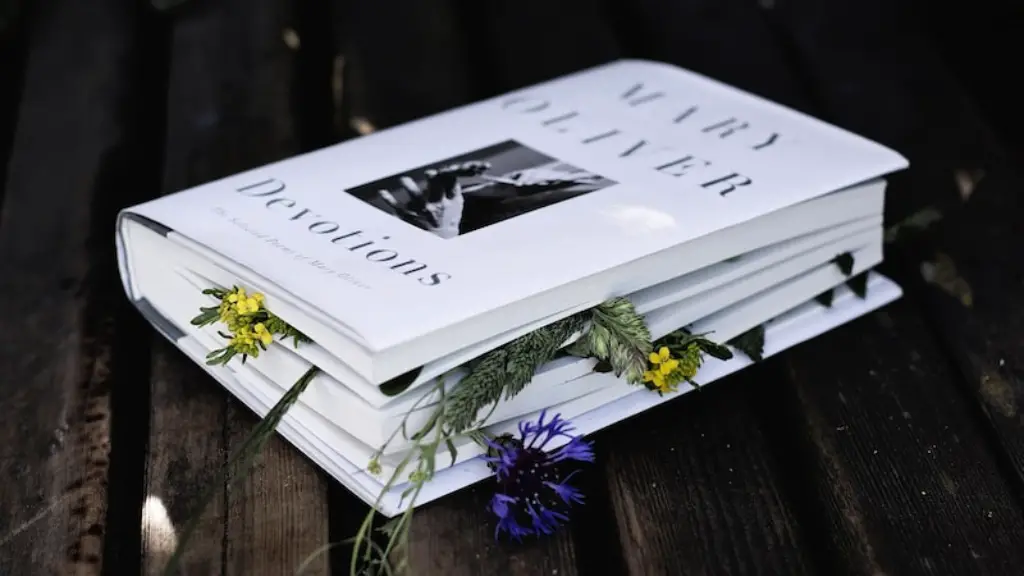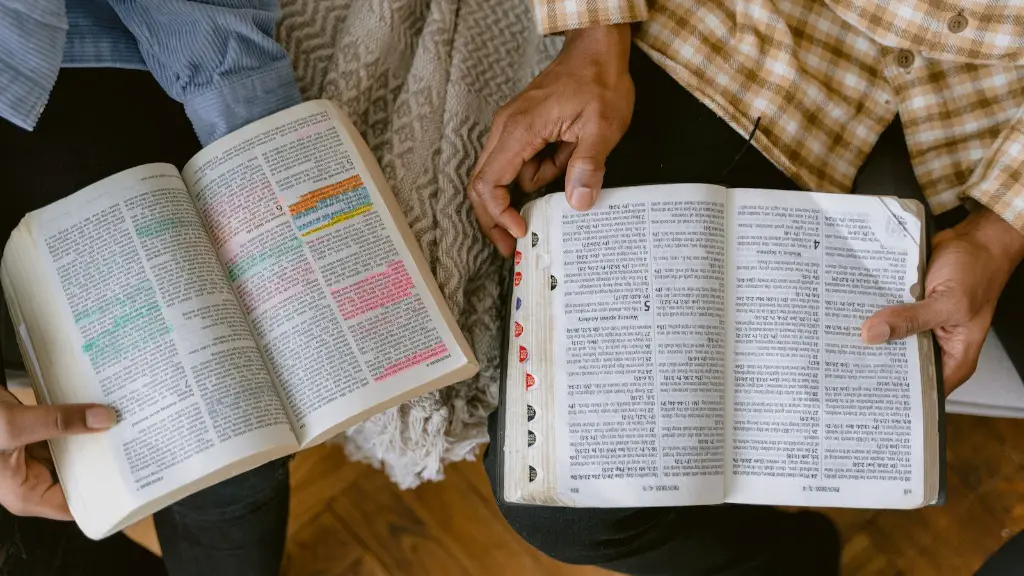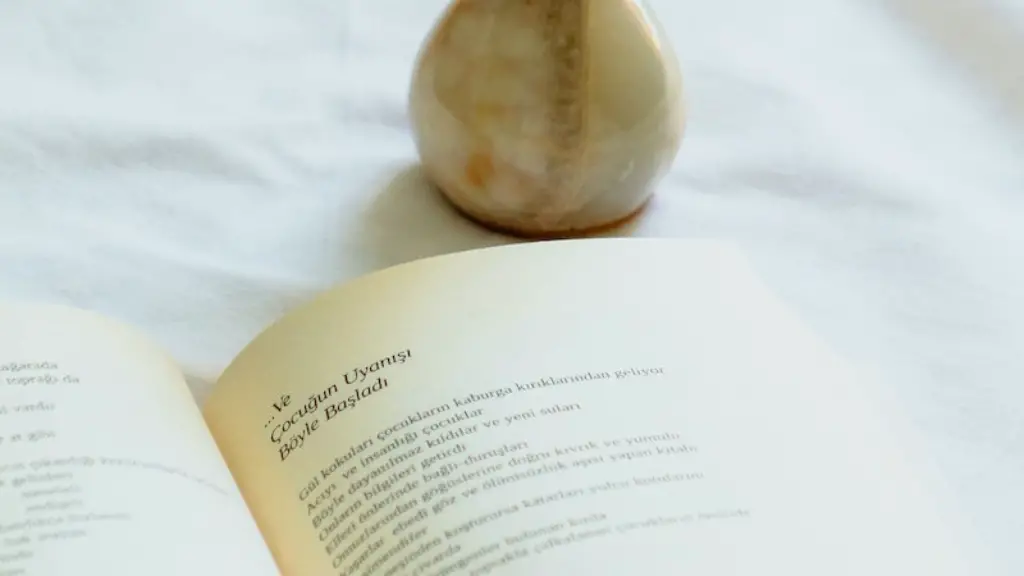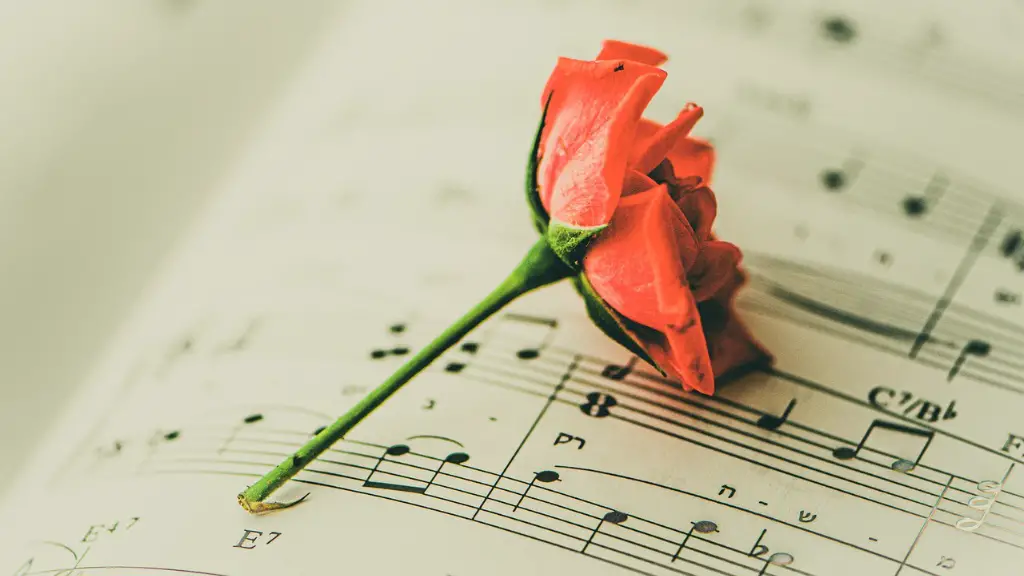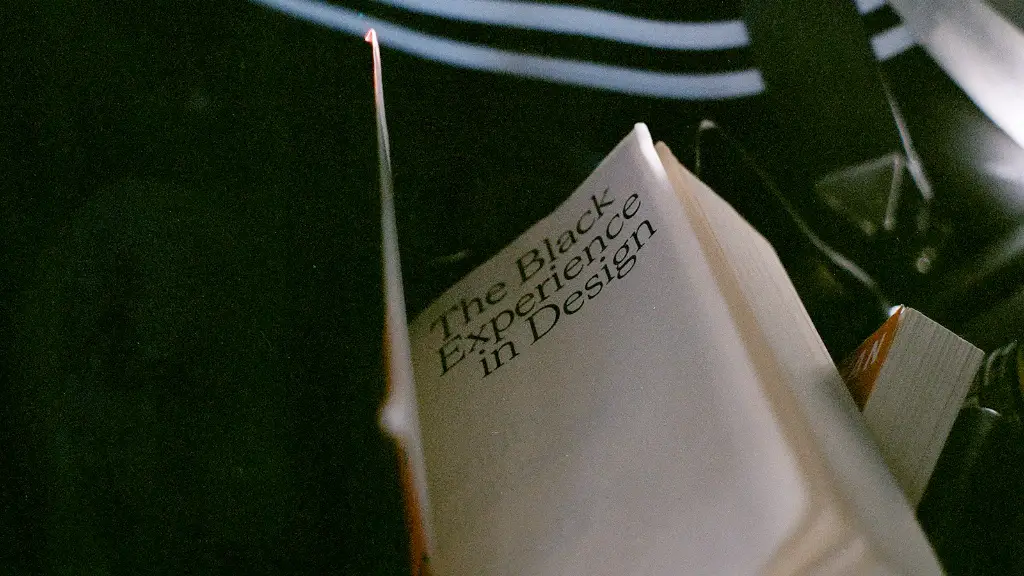Poetry has been around for thousands of years and has a long, rich history of influencing society, society’s culture, and the way people think and feel. While poetry may have been seen in the past as a medium to express human emotions and artistic expression, the question of whether poetry is still relevant is a legitimate one.
Nowadays, poetry has become somewhat of a niche pursuit, with many only being exposed to the medium via high school literature classes. Despite this, some passionate supporters of the form believe that it is as important and relevant as ever. To begin exploring the issue, let us first look at the rise of social media and its potential effects on poetry.
The advent of platforms such as Twitter, Instagram, and Facebook has provided the population with remarkably easy and convenient ways to communicate with each other, depending heavily on simple and direct forms of expression and brief, captivating imagery. This has led some to ask whether poetry is still relevant in a world so prevalent with brevity when it comes to communication.
Still, there are some who argue that poetry is as important and relevant now as it has ever been. In fact, “byte-sized” poems are becoming popular on Twitter and other social media websites, with poets paring down their works to fit in a format similar to the one commonly seen in social media. Poets and ardent supporters of the form are able to write powerful and meaningful lines while still fitting within the confines of the established medium.
Furthermore, there is evidence that poetry has found an entirely new audience outside of the classroom. Increasingly, poetry is cropping up in pop culture, with authors of all kinds embracing a blend of media, relying on the power of the verses to enhance their stories and messages. This shows that society and popular culture can appreciate poetry for its beauty and potential for effecting change and emotion, even if the form does not fit their common idea of a media format.
Finally, poetry has become indispensable in expressing emotion. While the brevity of most expressions on social media sites can often make it hard to form a full picture of an individual’s feelings, poets are able to use verse to tackle deep and complex emotions that can be communicated with an intensity not found in other forms of media. It is this benefit of poetry which shows that in the age of technology it is still a powerful tool.
Exploring Different Writing Styles
Different styles of writing poetry can invoke a wide range of emotions and can even serve to educate–all of which allows the author to reach a large audience. Haiku, for example, encourages the writer to be economical with words and to guide the reader towards a certain conclusion or feeling. In contrast, free-verse writing can help the reader to develop their own interpretation of a piece and to connect with the author’s sentiment in their own unique way.
No matter the style, many have been able to use the form to communicate complex ideas in creative ways. Thus, poets have been able to realise the true potential of poetry for both expressing emotion and for education. Offering the opportunity for the reader to make their own interpretations, poets have been able to discuss difficult topics in a more accessible way.
Moreover, poets are able to reveal information that the reader may not have noticed or considered before– the revelations may shock or motivate them to think in a different way and even to act on their newfound understanding. This use of poetry’s unique ability to inform and encourage is why some of the most powerful and impactful works in history come from the art of poetry.
Utilising Poetry in Other Mediums
Poetry does not have to be limited to just the written word. It can take on a multitude of forms in the world of television and cinematography. Shows such as the Dark Crystal and Star Trek: Deep Space Nine have introduced seasonal plot lines that use poetry to represent their characters’ emotions and dreams. Its use in these shows proves that the form still has an impact on the minds of viewers, even when presented in a different form.
Although some may be skeptical of this use of poetry as they view it as a diametrically different style of art, others would argue that its use can help to further propagate its beauty and give the works of poets a new platform. Doing this will only entice an even wider audience to appreciate and be influenced by the power of poetry – something that plays a strong role in transforming and advancing the cultural zeitgeist.
Leveraging the Potential of Poetry
We must not forget the potential of poetry in other areas of society. The educational benefits of poetry to assist in memorisation, raise knowledge and comprehension of multiple literary genres are widely documented with remarkable results. Its potential in politics, economics, and social justice have been used and further discussed in poems to get a point across in a concise yet direct manner.
It is clear from the multiple uses of poetry so far through time and its multiple applications, that it still carries relevance today. It is for this reason that, despite the rise of modern technology, poetry will stay alive and relevant for years to come.
Examining the Connection between Poetry and Music
Poetry is an art form that can use a variety of mediums, one of the most popular being music. Whether it is sung, spoken or thought — poetry, like music, has a way of reaching the emotions of both the singer and the listener. We tend to not just read, but to experience the words when accompanied by music.
The relationship between poetry and music is an ancient one, as most of the oldest surviving written forms of poetry were composed in song. This intimate relationship can be seen in both classical and modern forms, with poets inspired by bards, and musicians inspired by the powerful words of their lyricists.
Linking the two together is something that has stuck with us in the present day, with musical artists combining a range of genres with poetry. From hip hop to jazz and rock, it is difficult to find a genre that has not embraced the power of poetry. Despite some opposition, it is clear that the union of poetry and music still stands strong to this day.
Exploring Poetry in Comedic Forms
Poetry exists in a variety of forms, from the serious to the comedic. Many comedians have embraced the form and have used it to tackle the issues of our society. Humour can often be used to deliver a more effective message than the traditional informational mediums providing the audience with the opportunity for both enjoyment and education.
This proves that the form still possesses the same power to influence and challenge as it did when it was first embraced. By using poetic verse, comedians have managed to raise awareness of matters both important and controversial, using the increase in viewership to advance their message even further. Thus, it can be seen that poetry can be used to great effect in comedic forms.
Beyond the traditional role of comedy in tackling serious topics, poets have also embraced humour to brighten the mood of any reader. Even in its comedic forms, poetry has maintained its ability to evoke emotion and create introspection
Poetry as a Tool for Self-Expression
Finally, many people use poetry as a tool to express themselves and their inner struggles. By paring down their fears, anxieties and triumphs into short verse, those who write are able to come to terms with their experiences in more personal and effective ways.
In this way, poetry remains an essential tool for not only the writer’s creative process, but their mental wellbeing too. By providing their readers with an intimate glimpse into their inner world, the writer is able to help guide their readers toward improvement and self-discovery.
In conclusion, it is clear that despite its various forms, poetry is just as relevant now as it has always been. With the ease of communication provided by technology, we are able to view poetry in many more formats, its potential for power reaching more people than ever before. Whether it is expressed in the written word, spoken word, or in the form of music, poetry’s power to influence and invite understanding continues to this day.

